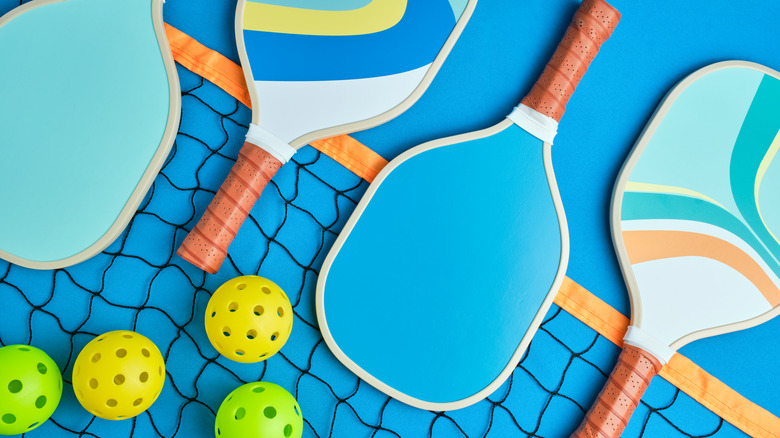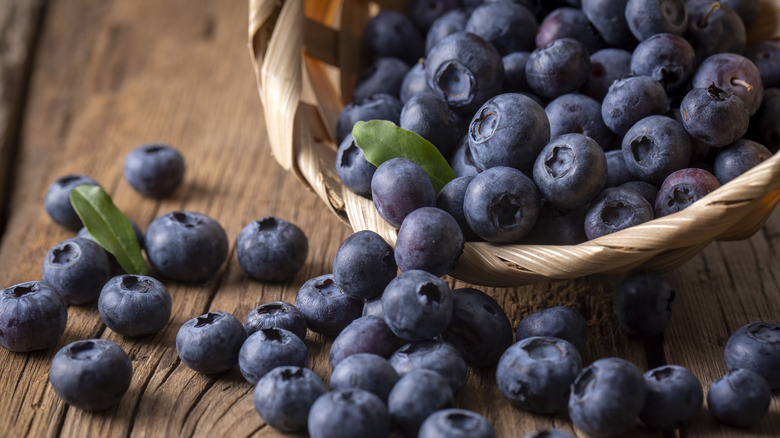Pickleball Has An Official Food - And No, It's Not Pickles
According to research from the Association of Pickleball Professionals, just under 20% of the U.S. adult population has played pickleball in the past 12 months. That's a lot of people; around 48.3 million people, to be exact. And with a sport that big and with such influence on the American people, it was only a matter of time before it claimed an official food. But unlike the name suggests, the food isn't pickles — it's blueberries.
Sounds like an odd choice, right? Well, blueberries are an incredible source of antioxidants and healthy nutrients, and the U.S. Highbush Blueberry Council (USHBC) knows this. The USHBC is a highly collaborative group that aims to uphold and increase consumer demand for blueberries through collaborative projects, and this partnership might be its best yet with the exponentially growing demand for pickleball, which has even extended into the celebrity world.
The choice encourages collaboration as well: Blueberries are meant for everyone involved in the sport. Kasey Cronquist, president of USHBC said as much in a press release. Cronquist explained, "There is tremendous opportunity to capture and grow this enthusiasm through our partnership with Major League Pickleball, which will come to life throughout the season and motivate consumers to grab a boost of blue, whether they're a fan of playing pickleball, watching it, or both." Major League Pickleball and USHBC will promote blueberries with various marketing campaigns and special activities at pickleball events throughout the year.
What do blueberries have to do with pickleball?
Blueberries may seem like a random choice for a sport with "pickle" in the title, but the choice came with the goal of keeping Americans healthy. Research shows that blueberries, a North America-native fruit, are one of the healthiest fruits as they are full of vitamins C and K and are a great source of dietary fiber and manganese. Blueberries are also high in antioxidants, which can help protect cells in your body that are in danger and, as such, can even help protect against heart disease and cancer.
The small berries can also provide mental benefits. Blueberries can significantly improve memory and are especially effective in adults who have already suffered some sort of memory loss. Additionally, blueberries can decrease the chances of developing long-term chronic illnesses by reducing chronic inflammation, a common and leading symptom of chronic illnesses. Overall, the benefits of blueberries are tenfold and are worth personal research (there are too many positive health effects to cover here).
Blueberries in North America are in season from April to October but are available year-round thanks to South America's growing season, so there are plenty of opportunities to use them fresh. While there is no recommended serving for blueberries per day, a study conducted by the University of East Anglia showed that around one cup per day can reduce risk for certain diseases. So if you're going to play pickleball or eat blueberries, you may as well do both to drastically improve your health and eat the official food of the sport.

